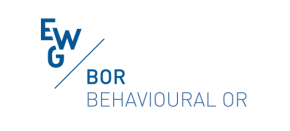Tianqi Hu (Loughborough University), Ilkka Leppänen (Loughborough University), L. Alberto Franco (Loughborough University), Maxwell Shinn (University College London
Abstract:
Subjective uncertainty about what the best decision is, also known as cognitive uncertainty, is a pervasive aspect of risky decision making. Research suggests that cognitive uncertainty can arise from different sources, depending on the mode of numerical cognition used in processing probability and outcome information. When the mode used is exact processing, decision makers respond to the exact features of options available to them, and cognitive uncertainty arises from noisiness in the subjective judgement of expected utilities. By contrast, when the mode used is approximate processing, cognitive uncertainty arises from perceptual misjudgement of numerical information, in addition to the noisy evaluation of expected utilities. Although previous research has acknowledged the presence of both sources in risky decision making, there have been few attempts to assess the mode-specific impact of each source. Furthermore, because risk preference in small-stakes decisions is likely to arise from perceptual misjudgement and risk preference in large-stakes decisions is likely to arise from noisy evaluation of utilities, knowing the impact of each source on risk preference would help designing tools for effective managerial decision making. We study how cognitive uncertainty affects risk preference in the two different domains, exact and approximate processing of numerical information, using a lottery choice experiment. Using the Drift Diffusion Model, we quantitatively measure cognitive uncertainty as the strength of information signal in risky preference formation. Our results show that a high level of cognitive uncertainty is associated with risk-averse behaviour when the decision process involves exact processing, but cognitive uncertainty is not found to be related to risk preference when the decision process involves approximate processing. These results suggest that cognitive uncertainty arising from noisy evaluation of utilities, rather than imprecise perception of information, affects risk-taking propensity by increasing risk aversion. Overall, findings in this study have implications for both theory development and real-world applications of risky decision making. In particular, cognitive uncertainty may be a strong factor affecting risky preference formation in structured decision processes.
Some points that might attract audience:
1. It is well-known, but often overlooked that people exhibit cognitive uncertainty in decision making, i.e., subjective uncertainty about what the best decision is.
2. We show that cognitive uncertainty is not only responsible for the variation in decisions, but can also affect risk-taking propensity, and this effect arises from the noisy evaluation of expected utilities.
3. Given the pervasiveness of cognitive uncertainty, study of the role of cognitive uncertainty in preference formation has broad applications. We suggest directions for future research.


